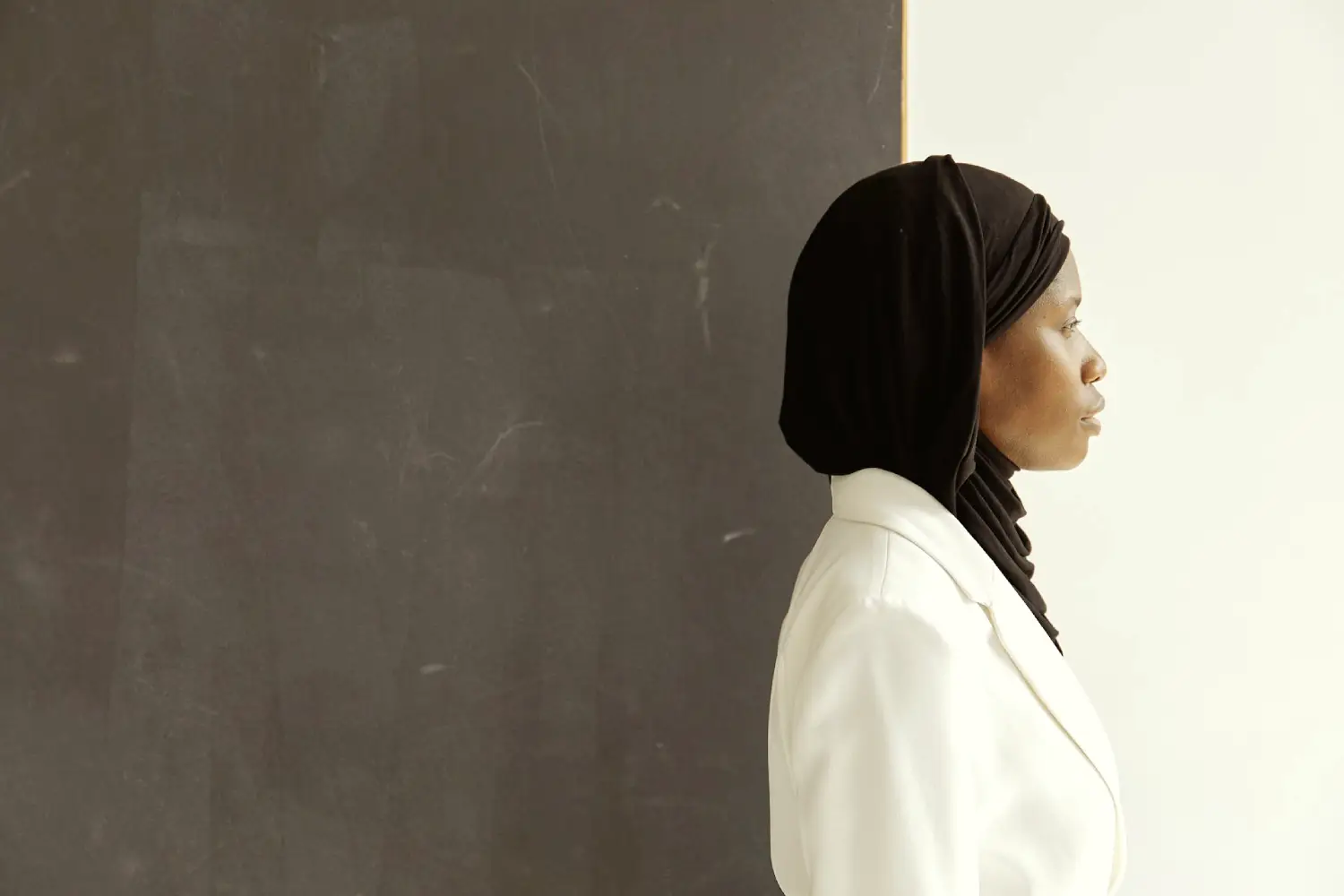Big Hope Miscarriage Support Project
You can view this page in your language.
Big Hope Miscarriage Support is available in English, Somali, Amharic, and Swahili.
In many East African and culturally and linguistically diverse (CALD) communities, miscarriage remains a silent grief. Cultural expectations, stigma, and fear of judgement often make it difficult for women to speak openly about their experience or seek support. However, miscarriage is a common experience. In Australia, it is estimated that 1 in 4 pregnancies end in miscarriage. You are not alone, and you deserve support that respects your story, your culture, and your healing process.

Our Services
Africare Community Services Inc. offers a range of culturally sensitive services designed specifically to support East African women and families through the experience of miscarriage.
Culturally Sensitive Counselling
Delivered by professionals who understand East African cultural beliefs and traditions, including nurses, midwives, and counsellors.
24/7 Multilingual Helpline
Immediate support is available in Amharic, Tigrinya, Oromo, Somali, Swahili, and English.
Peer Support Network
Connect with trained East African women who have also experienced miscarriage. You don't have to go through this alone.
Community Education and Workshops
Programs designed to reduce stigma and raise awareness about miscarriage in East African communities.
Healthcare Provider Training
Educating healthcare professionals about the cultural beliefs surrounding pregnancy and miscarriage in East African communities.
Holistic Support
Holistic support around miscarriage involves recognizing all aspects of a person’s well-being including physical, mental, emotional, social, spiritual, and cultural. We consider how factors like cultural background, language barriers, and individual identity intersect to shape each person’s experience. This approach is especially important for East African women, whose unique cultural contexts and experiences influence their healing journey.
What is Miscarriage?
Miscarriage is the natural loss of a pregnancy before 20 weeks. Most occur in the first trimester and often happen due to reasons beyond anyone's control, such as chromosomal abnormalities. Miscarriage is not caused by stress, diet, or everyday activities like working, exercising, or having sex. It is important to know that it is not your fault.
Reference: The Royal Women's Hospital (2022). Miscarriage: causes and symptoms. Retrieved from www.thewomens.org.au.
Types of Miscarriages
Chemical Pregnancy
A very early miscarriage, often occurring before 5 weeks. Many women do not realise they were pregnant.
Threatened Miscarriage
There may be bleeding or cramping, but the pregnancy continues, and the cervix remains closed.
Missed Miscarriage
The baby has stopped developing, but there are no physical signs. Often discovered during a scan.
Recurrent Miscarriage
Defined as three or more miscarriages in a row. It may lead to further medical testing.
Complete Miscarriage
All pregnancy tissue passes naturally, usually ending symptoms of bleeding and cramping.
Incomplete Miscarriage
Some tissue remains in the uterus. Medical treatment is often needed.
Blighted Ovum
A fertilised egg implants but no embryo develops. It is usually detected during an early ultrasound.
Ectopic Pregnancy
A pregnancy that develops outside the uterus, usually in a fallopian tube. This is a medical emergency.
Common Signs and Symptoms of Miscarriage
If you are experiencing any of the following symptoms, please consult your doctor, midwife, or primary healthcare provider as soon as possible.
Vaginal Bleeding
- May range from light spotting to heavy bleeding.
- Bleeding can appear as brown discharge or bright red blood with clots.
Cramping or Pain
- Moderate to severe cramping in the lower abdomen or lower back.
- The pain may feel similar to strong period cramps or come in waves.
Passing Tissue or Clots
- You may notice greyish or pinkish clumps of tissue or fluid passing from the vagina.
- Some women report seeing a sac or solid material.
Pelvic or Lower Back Pain
- Ongoing discomfort or dull aching in the pelvic area or lower back can also be a sign of miscarriage.
Bereavement Support
Miscarriage can bring deep grief, shaped by culture, faith, and family expectations. For many East African and CALD women, this loss is felt silently and profoundly.
Africare offers compassionate bereavement support that is culturally sensitive and available in community languages. We provide one-on-one counselling, safe spaces to share with others, and help in creating personal ways to honour your loss—whether through prayer, rituals, or remembrance.
You don't have to grieve alone. We are here to support you in a way that respects your story and your healing journey.

Miscarriage Is Not Your Fault
Miscarriage is a deeply personal and often painful experience. It's important to understand that it is not your fault. In most cases, the causes of miscarriage are beyond your control—there is nothing you did or didn't do to make it happen.
You are not alone. Many women and families in East African communities experience miscarriage, even if it's not often spoken about. It's okay to grieve. It's okay to ask for help. With time, support, and care, healing is possible.

Every Feeling Is Valid
After a miscarriage, it's normal to experience a wide range of emotions—sadness, anger, confusion, guilt, numbness, relief, or even calm. There is no right or wrong way to feel.
Grief can come and go. You might feel overwhelmed one day and disconnected the next. Miscarriage is a deeply personal experience, and so is your emotional response. However you feel—whether strongly or quietly—is valid. You do not need to explain or justify your emotions to anyone.
Talking to a trusted person, community elder, or counsellor can help you process what you're feeling and remind you that you are not alone.
You Don't Have to Do This Alone
If you are a mother going through a miscarriage, you may feel pressure to stay strong—especially when your children depend on you. But even the strongest women need support. You deserve rest, compassion, and space to grieve.
Many East African women are relied upon by their families and communities to keep going, even in times of deep personal loss. But miscarriage takes not only an emotional and psychological toll—it affects your body too. You don't have to carry this alone. Reaching out for help is a sign of strength, not weakness.

Asking for Help from Your Partner
It's okay to ask your partner for support—especially when you're healing, both physically and emotionally. Let them know what you need in clear and gentle words.
You might say: "I know we're both hurting, but I really need more help with the kids and around the house. My body and mind need time to recover."
Sometimes partners may not know what to do or say. Be specific and don't hesitate to express your needs. Clear communication can make a big difference in how you both navigate this experience together.
Supporting Someone After Miscarriage
Miscarriage is often kept quiet, but your support can make a big difference.
Be kind, respectful, and present. Even one caring person can help someone feel less alone.
Speak from the heart—in your own words, in your own language. There's no perfect way to show you care.
Elders or respected women may have their own stories. With gentle encouragement, they can offer comfort and guidance.

Moving Beyond Miscarriage
Moving beyond miscarriage doesn't mean forgetting—it means finding your own way to heal.
Grief looks different for everyone. Some days may feel heavy, others more calm. You may feel sadness, guilt, anger, or relief. All feelings are valid, and there's no right timeline for healing.
Some women find comfort in prayer or remembrance. Others need time to rest, talk, or reconnect with themselves. Whether or not you choose to try again, your path is yours.
In many East African and CALD communities, miscarriage is often kept private. But you don't have to go through it alone. With the right support, healing is possible.
You are not alone. You are not to blame. And with time, things can feel lighter.
We are here when you are ready.
Acknowledgement
This project is supported by the Department of Health, Disability and Ageing. We sincerely thank them for their contribution.
On-Demand Support
We're here to help. Let us know what you need and we'll respond as soon as possible.